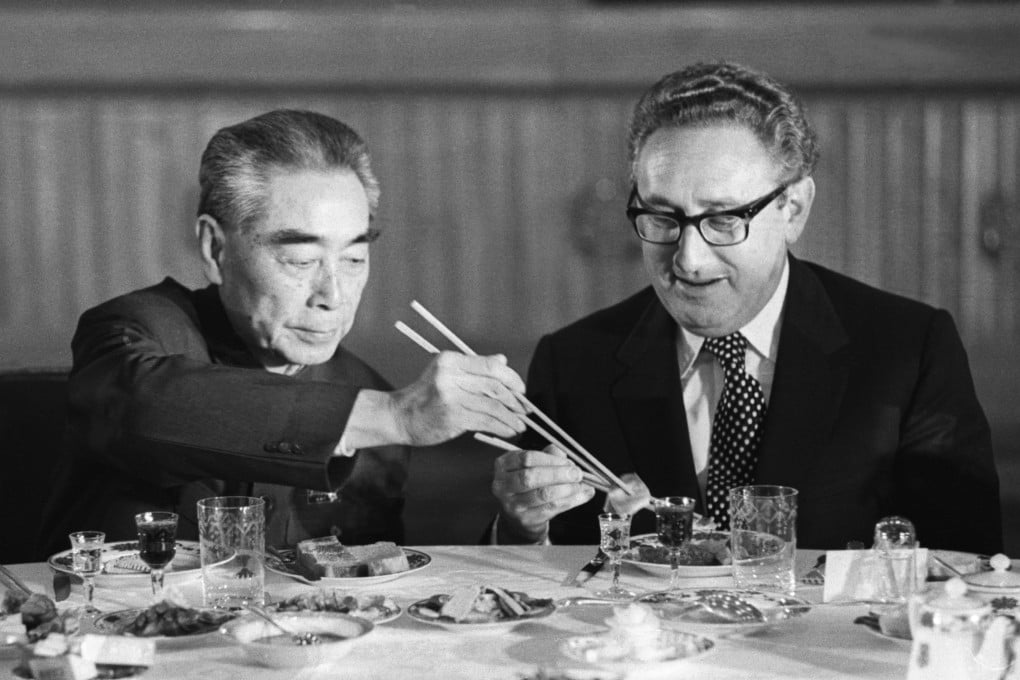Advertisement
Opinion | To best honour Kissinger, let’s keep working on healthy, stable China-US relations
- Kissinger spent half his life on China-US ties. The best way, perhaps, to remember and honour him is to turn the Xi-Biden San Franciso vision into reality and move relations to a better place
Reading Time:3 minutes
Why you can trust SCMP
6

I first came across Dr Henry Kissinger’s name in 1971. To a seven-year-old boy, it took some time for the radio news that chairman Mao Zedong and premier Zhou Enlai were meeting a “US national security adviser Dr Kissinger” to sink in. It was only later that I came to realise this was the start of the normalisation of China-US relations.
Ten years later, when I went to China Foreign Affairs University, White House Years was a must-read for me and my classmates. We had heated discussions on his thinking about the “balance of power” and his art of “minuets”, which further aroused our interest in pursuing a career in diplomacy.
Since starting to work on China-US relations in the 1990s, I had the privilege of sitting in on many of Dr Kissinger’s meetings with Chinese leaders. After my arrival in the United States as the Chinese ambassador in May, he was one of the first American friends I called upon. At his home in Connecticut the day before his 100th birthday, I conveyed President Xi Jinping’s congratulatory letter. After that, I met him six more times. If only I could have done more.
Advertisement
Dr Kissinger never failed to amaze me with his sharp wit. He was known as a quick study and deep thinker. An all-time favourite story is how his 383-page thesis caused Harvard to create the “Kissinger rule”, limiting the length of all future undergraduate papers to 150 pages. And his philosophical vocabulary was always a challenge for our notetakers – the cute German accent did not help.
But that was how he had cultivated his strategic foresight. In the 1970s, when China and the US were estranged from each other for 22 years, he and president Richard Nixon foresaw the changes of the times and forged ahead to reopen the door of China-US relations together with Chinese leaders.
After leaving office, he continued to follow the relationship with keen interest, proposing a “co-evolution” paradigm for the two countries to coexist peacefully. In his 90s, he became obsessed with a very modern concern – the potentially disruptive implications of artificial intelligence, and had been ever since a most vocal advocate for China-US dialogue and cooperation on AI.
Advertisement
Advertisement
Select Voice
Select Speed
1.00x
